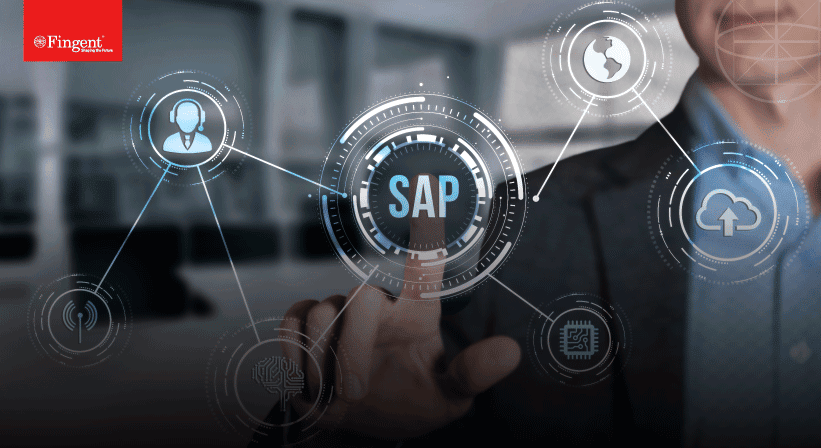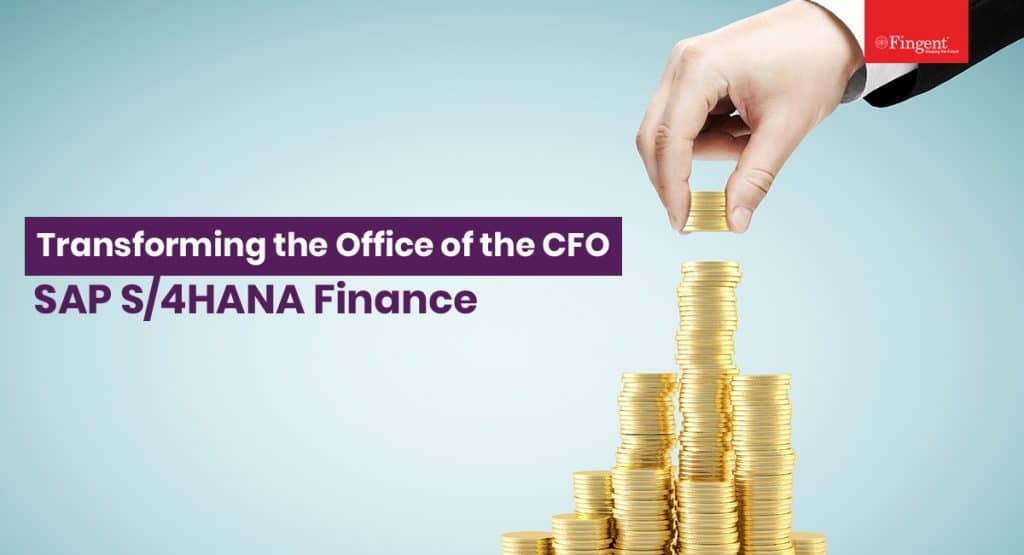How SAP Solutions Allow Retailers to Stay Competitive in 2024
The COVID-19 pandemic has hit retailers hard. Overnight, malls, boutiques, and shops teeming with customers were evacuated. As the days dragged by and shutters remained close, many retailers had to let go of employees and even shut their shops permanently. We will see how, but this blog aims to show that this does not need to be the case for your retail business. You can still stay afloat, beat the competition, and rise to success with a little help from SAP!
Changing market conditions show no mercy on retailers
With the pandemic raising its ugly head, 2020 seemed to paint a dismal picture for the future of retail. Major retailers have been canceling orders and delaying payments to their suppliers. This forced some brands to store their seasonal articles or move them into distribution centers or outlets. For some retailers, the coronavirus pandemic increased the risk of bankruptcy due to store closures, while others barely made it through.
For example, Rubana Huq, the president of BGMEA (Bangladesh Garment Manufacturers and Exporters Association), told the press that 3.18 billion orders were suspended. This had an impact on more than half of the 4 million garment workers in Bangladesh.
At the other end, brick-and-mortar presence is seeing a shift to the online commerce environment, which picked up at an exponential pace. E-commerce proved to be a pivotal moment for retailers, making it necessary for them to invest in digital capabilities. A critical aspect of staying competitive in such unprecedented times is the growth of technology and its importance in operational success.
Read more: How Fingent Helps CFOs Gain New Insights and Reliably Enable Key Decisions
Read on to find out how SAP plays a crucial role in turning things around for the retail industry.
SAP enables a differential strategy in the competitive market
More and more companies are recognizing the advantages of implementing SAP solutions. In the current recessionary and competitive market, delaying digital transition may prove a costly misstep that retail businesses will find hard to retrieve. Solutions offered by SAP can help retailers control various aspects of their business and identify trends in customer behavior and capitalize on opportunities at the right time.
With ever-changing customer behavior, SAP equips retailers to become customer-centric. It can help retailers analyze buying behavior by providing much-needed consumer insights. These insights will help them offer more personalized and delightful buying choices that attract customers and retain them.
Here is how SAP equips retailers:
- Provides real-time behavioral information, both online and in-store
- Reduces cycle time
- Helps retailers identify newer ways to find leads and build loyalty
- Streamlines operational process
Also, SAP solutions can help retailers offer a real-time personalized buying experience as it influences buyers’ behavior at the point of purchase. To create such a customized offering, retailers will need insight into buyers’ purchase history, profile, and shopping behavior. That’s where SAP solutions come to your rescue. SAP can provide retailers with all the information required to help them stay competitive.
SAP solutions help deal marketing and merchandise challenges
The retail industry can be volatile, especially during times like these. Retailers who manage seasonal merchandise might find it challenging to maintain multiple products and keep track of all that product data. Any incorrect data can prove costly for the organization. Such inaccurate data can also lead to a mismatch of data across all sales channels, presenting inconsistent product pricing and customers’ eventual loss.
Thankfully, SAP is the backbone for merchandise management, nullifying all these challenges. It comes with a simplified data model that offers end-to-end support for all retail functions. This concept works across the product lifecycle, from master data creation to stock management. It allows retailers to create and maintain the data effortlessly while ensuring pricing consistency across all the channels. These features can increase the organizations’ revenue, minimize data errors, enhance time to market, facilitate a better customer experience, and increase conversions.
Here is an example of how SAP solution helps:
Fewer markdowns: Retailers such as consumer electronics and fashion deal with seasonal goods. To stay competitive, retailers must ensure that these products are available in good time. SAP solutions offer more efficient season management and optimized ordering.
SAP solutions can help manage challenges in the supply chain
Inaccurate data can create challenges in planning, leading to longer response times and increasing the risk of losing the consumer to competitors. Fortunately, SAP solutions come with a single platform for all warehouse and transportation management. Features such as real-time analytics and advanced shipping capabilities can eliminate inventory challenges and enable live inventory management.
Thus, the supply chain process becomes agile and leads to higher revenue. It can also reduce the operating cost of the warehouse. By simplifying and automating processes, SAP can redefine retail and bring value to any retail business.
Read more: How SAP Helps Realize Voice-enabled Warehouse Operations
Following examples prove SAP helps with supply chain:
1. Fewer stock-outs
Supply chains are typically complex and need high levels of agility. SAP solution enables retailers to track procurement journeys automatically that helps reduce revenue loss due to the late arrival of seasonal goods.
2. Lower inventory costs
SAP can harmonize stock information and keep it up to date. At any given point, a retailer can intervene centrally and place a repeat order when necessary. This reduces inventory carrying costs and enables better inventory management which increases revenue.
3. Create seamless customer experiences
Retailers realize the significance of adopting sensor technology to create seamless and highly personalized business processes across all channels. SAP simplifies logistics and digital channel processes from order to payment, both in-store and online.
Key solutions from SAP for retailers
Here are some key solutions that SAP has made available, which can help your retail business:
1. SAP S/4HANA Retail solution for merchandise management
With the SAP S/4HANA retail solution for merchandise management, you can perform necessary checks on inventory, offers, availability across stores, and more in a single, unified view. It is instrumental in engaging your customers with cross-channel interactions.
Read more: SAP S/4HANA: Redefining End-To-End Solution
2. SAP Commerce Cloud
Through the SAP Commerce Cloud, retailers gain the ability to “launch new digital experiences with headless e-commerce capabilities.” SAP Commerce Cloud empowers your retail business with Web apps, chatbots, messengers, and other capabilities to enhance your customers’ digital experience, engagement, and conversions.
Read more: Why is SAP Commerce Cloud A Complete Digital Business Solution
3. SAP Ariba Strategic Sourcing
The SAP Ariba Strategic Sourcing Suite is “a single, closed-loop, source-to-contract solution bundle for managing sourcing and suppliers across all spend categories.” It helps retailers efficiently manage their direct materials sourcing without going through laborious and faulty manual processes.
Read more: SAP Ariba & SAP IBP Integration to enhance supply chain visibility in manufacturing
4. SAP Extended Warehouse Management
The SAP Extended Warehouse Management system is a brilliant solution to managing high-volume warehouse operations. It gives you complete visibility of your supply chain logistics, warehouse operations, and distribution process, giving you seamless control and maximizing the use of your resources.
5. SAP Business One for Retail
SAP Business One for Retail is a comprehensive digital solution that enables retailers to manage all their retail operations, including Point of Sale (POS) insights. It helps retailers with better inventory control, a streamlined ordering process, and seamless multi-channel e-commerce.
Read more: SAP Business One vs. SAP Business ByDesign: Helping Businesses Pick the Best
Empower your retail business with SAP
An industry capable of adapting to new and evolving trends will rapidly recover from the pandemic’s effect. SAP solutions can help retailers examine those trends in great detail. SAP is a powerful tool that allows you to gather all the essential data needed to improve your business. Powered by insights gathered with the help of SAP solutions, retailers can redefine loyalty programs and stay competitive in the current market space.
Fingent offers custom implementation and migration services to SAP and can help you move quickly and make the best use of this technology NOW when you need it the most. Leveraging SAP solutions with a Silver Partner of SAP will give your retail business an added advantage. Drop us a message, and let’s get you started.
Stay up to date on what's new

Recommended Posts

14 Jun 2024 B2B
SAP S/4HANA Greenfield Vs Brownfield Vs Bluefield – A Guide for Migration
One-size-fits-all? Not anymore, and definitely not when it comes to SAP S/4HANA! If you’ve made the choice to transition from your legacy systems to SAP S/4HANA, then you're on the……

24 May 2024 B2B
SAP ECC to SAP S/4HANA Migration: Why Act Now?
It's official! SAP will end ECC support in 2027. SAP ECC has been a cornerstone for many industries and has undoubtedly had a good run. But now it’s time to……

21 Jan 2024 B2B
The Impact of SAP S/4HANA Cloud and BTP Collaboration on Business Transformation
In today's fast-paced business world, staying competitive goes beyond traditional strategies. The digital age requires a seamless blend of cutting-edge technologies. SAP, a global leader in enterprise software, offers a……

17 Dec 2023 B2B
What Is to Know About The New SAP S/4HANA Cloud 2111 Release
Which transformation path aligns with your business objectives? This is a critical question to ask when designing your business transformation journey. This makes it vital to take the time to……
Featured Blogs
Stay up to date on
what's new



























































